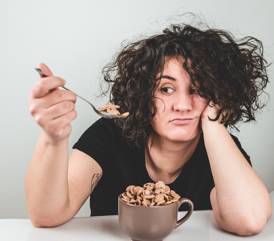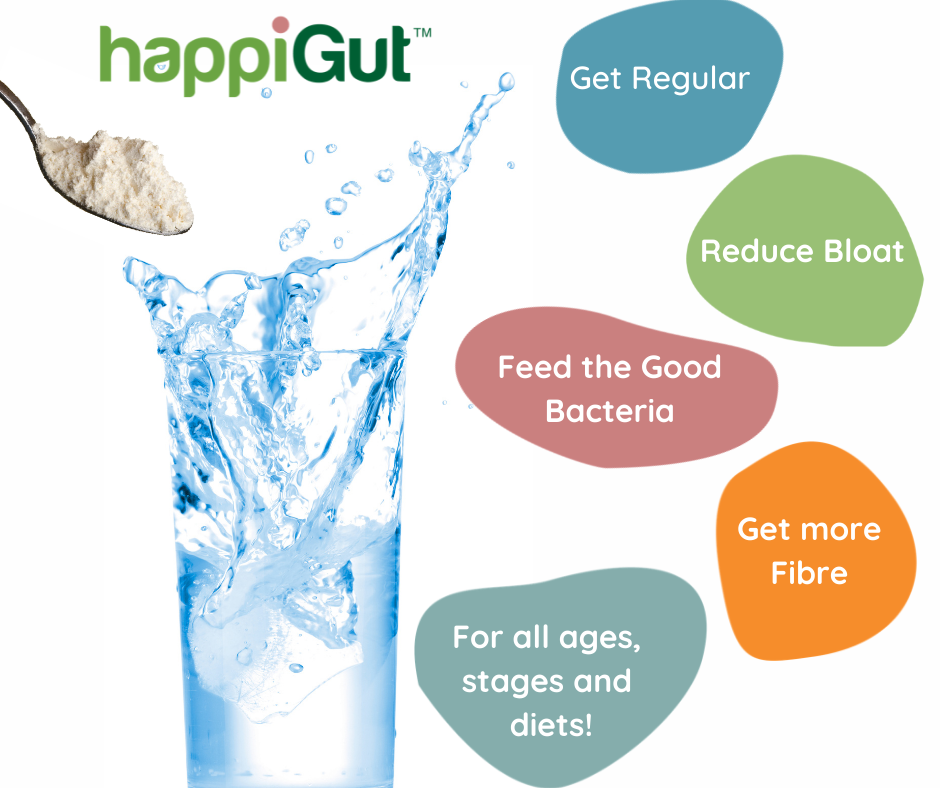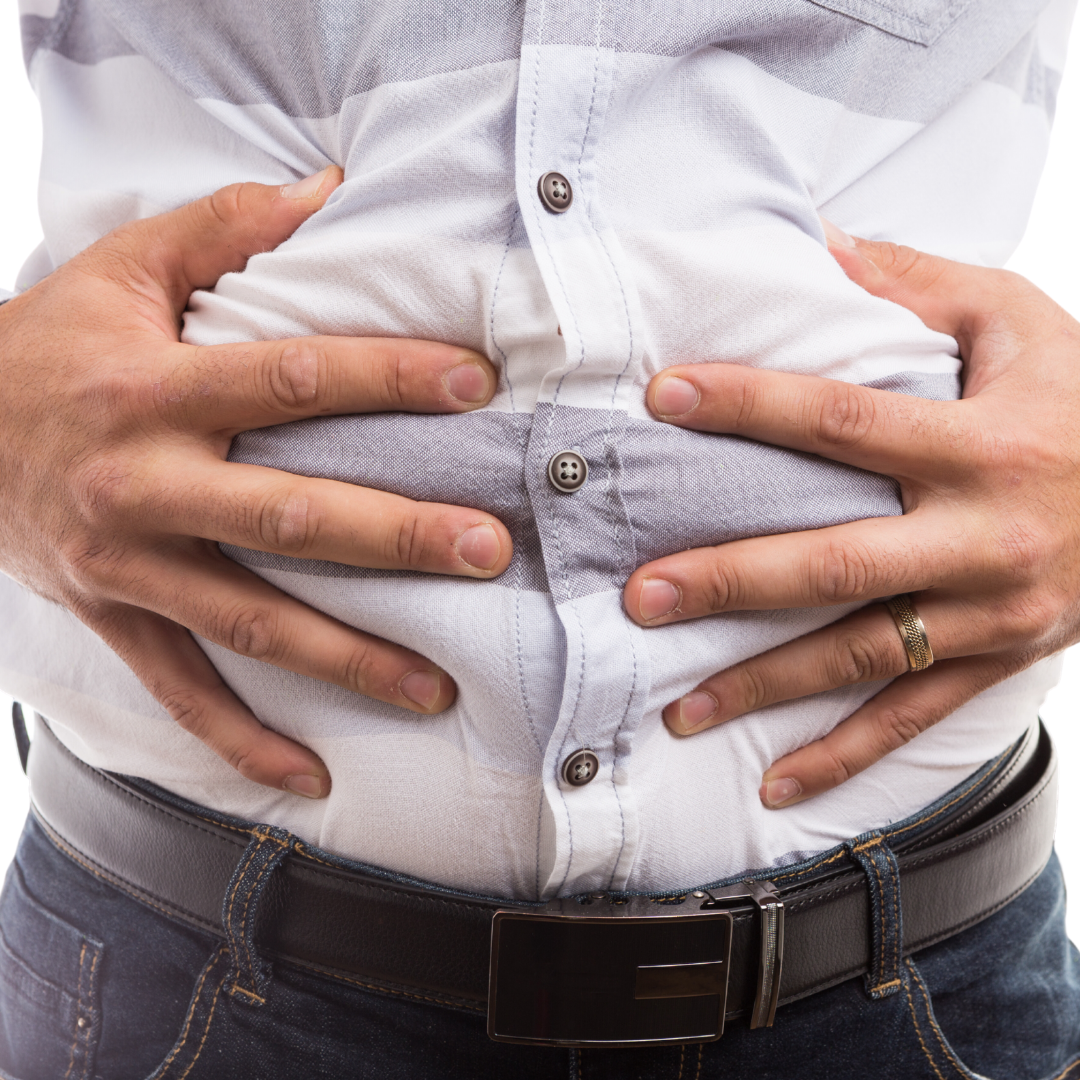Do you feel your tummy is bloated after eating even a small meal? If you answered yes, it doesn’t have to be this way.
Bloating and gassiness aren’t just limited to holiday seasons. One in 10 Americans reports suffering from bloating regularly, even after eating a small portion. Even though most people do not seek medical help, there is no denying how uncomfortable and sometimes painful it can be.

Here are some of the most common reasons why you might be bloated and how you can relieve the discomfort at home.
It Can be Constipation
Bloating and constipation go hand in hand. If you’re constipated, that could be the culprit behind a bloated belly. Take steps to prevent constipation by starting with a fibre-rich diet. Sufficient fluid intake or drinking water may help reduce bloating by ridding your body of excess sodium. This step can also prevent you from overeating. Regular exercise, even a 20–30-minute brisk walk four times a week, can improve your bowel function. A balanced diet rich in fibre, low sugar and minimally processed foods will help you maintain a happy gut free of bloating.
Food Intolerance
Food intolerance might lead to bloating if:
• Your bowel doesn’t empty properly
• The food builds up gas in your stomach
• Gas gets trapped in your gut
Food intolerance is caused mainly by wheat, gluten and dairy products or FODMAPs. Here’s one way to identify the culprit.
Maintain a food diary for a few weeks where you log everything you eat or drink that gives you a bloated belly. The best tactic is to eat less or cut out the intolerant group completely.

You’re Swallowing Air
Swallowing air could be another reason you have a gassy and bloated stomach. To avoid swallowing air when eating, bring some changes to your eating habits.
- Sit down straight to eat, and don’t talk while you have your meal.
- Reduce the number of carbonated drinks you consume.
- If you like chewing gum, chew with your mouth closed so you’re not taking in excess air.
- You Might Have IBS
You might have IBS
Irritable Bowel Syndrome or IBS is a condition that causes bloating feeling with abdominal pain, constipation or diarrhea. Specific triggers can cause the onset of IBS symptoms that includes:
- Bacterial infections
- Food sensitivity
- Stressful events
If you show symptoms of IBS, reach out to your doctor for a diagnosis and talk to a dietitian who can advise you on a gut-friendly diet low in FODMAPs.
Tips to reduce bloat
Studies suggest that chewing food more thoroughly may help decrease the time that food spends in your stomach and thus reduce the gas and bloating that some people experience. Chewing food more thoroughly may also help improve digestion and enable you to get the nutrients you need.
Abby Langer, a Toronto-based dietitian, recommends massaging your abdomen or drinking chamomile or ginger tea to facilitate movement in your gut. “In general, avoid eating past the point of being full,” she says “When you eat too much, your stomach will expand. This is a physical response and there isn’t much to do except to avoid overeating,” said Langer.
Increasing the amount of fibre in your diet is another popular way to improve digestion — but be sure to increase your water intake at the same time, he said.
Fibre Supplements for Bloated Stomach
If you’re constantly feeling bloated and gassy, it’s time to check your fibre intake. The daily recommended fibre intake for an adult is 25-30g. Additionally, your body needs 3-5 grams of prebiotic per day. With our fast-paced lifestyle and diet, fibre requirements are left unmet most of the time, leading to constipation, bloating, digestive issues, and other health problems.
When you increase your fibre, whether it’s through veggies or fruit… but don’t have enough water, that fibre becomes really dense in your digestive system and it’s hard to pass. And then you become constipated. Supplementing with whole food fibre can go a long way to resolving your gut problems. Look for a fibre supplement that is natural, minimally processed, contains a perfect blend of soluble and insoluble fibre and is nutrient-dense.

We recommend our happiGut™ — Whole Food Prebiotic Fibre to help with a bloated and gassy tummy. With nutrients straight from the plant, including micronutrients, trace vitamins and minerals and antioxidants, happiGut is a superfood for the gut that will give your body the fibre boost it needs and support your whole health. This prebiotic fibre is made from sugarcane (sugar removed) in powder form, which can easily be added to a wide variety of meals and drinks. Prebiotic fibre also promotes the growth of healthy bacteria in the stomach that promotes good digestive health. For bloating and constipation, we recommend 1 to 2 tsp of happiGut per day.

Even though bloating is rarely a symptom of severe trouble, it is uncomfortable and painful — sometimes even embarrassing. A balanced diet rich in fibre and nutrition-dense food can improve your digestive health and say goodbye to bloating for good!


No Comments
Be the first to start a conversation